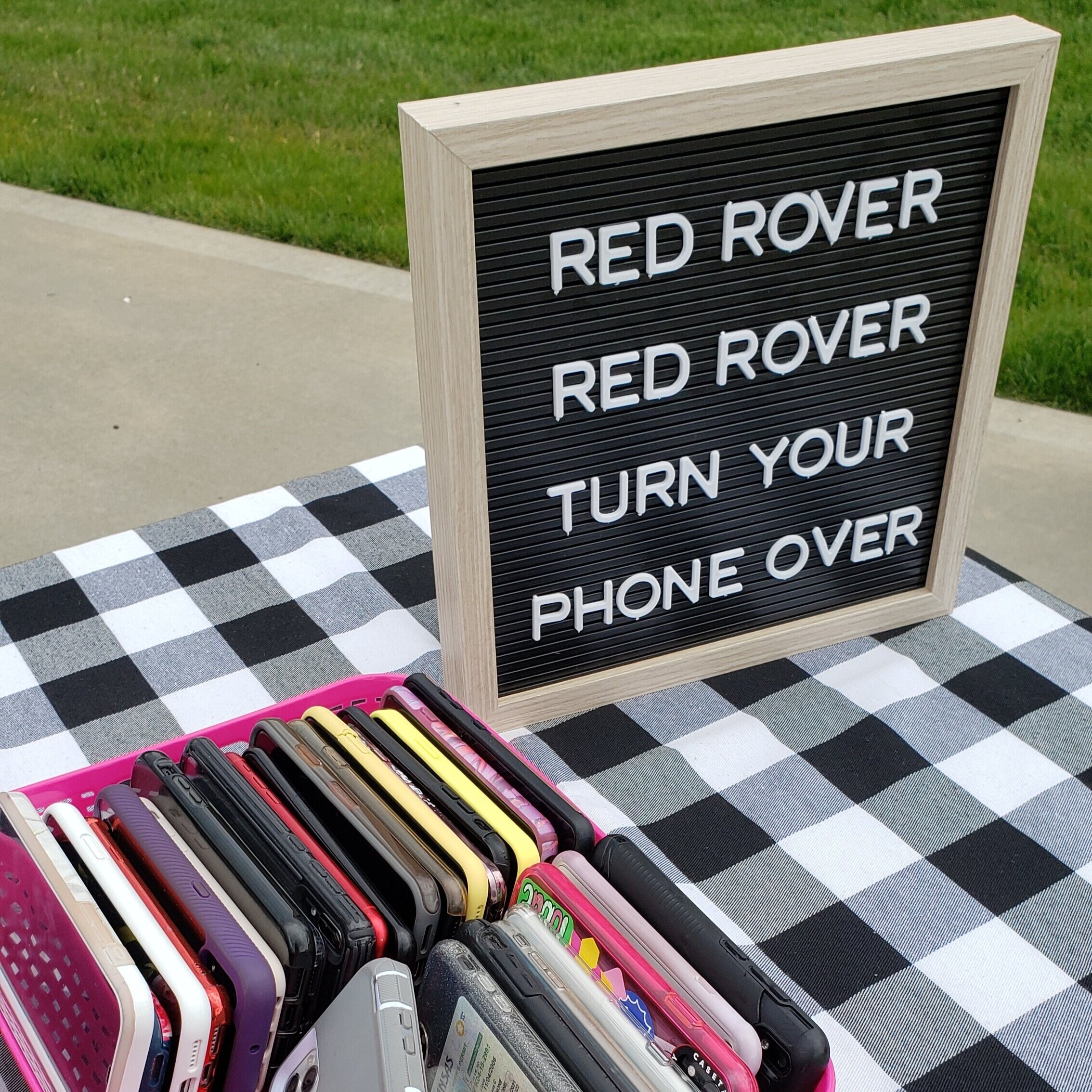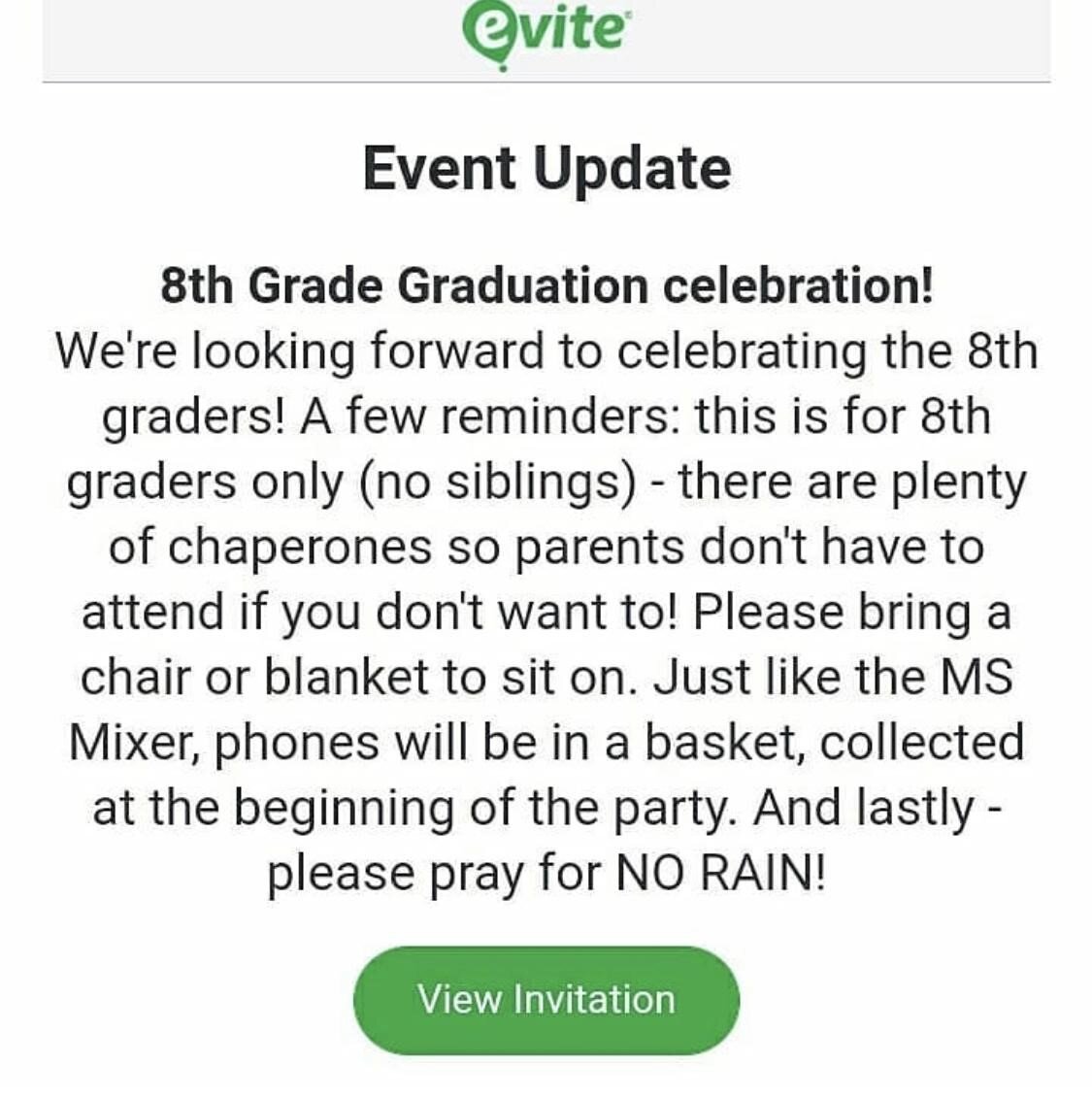
When we establish device-free zones, we develop lifelong habits that foster our kids’ mental health. And when the whole community is on board, it is a game-changer. FOMO goes down, sleep goes up, and risky behaviors aren’t as tempting. Though there might be pushback at first, they’ll feel relieved without the pressure to always be “on.”
The challenge, of course, is that it can be awkward to start this conversation with other families. So when we spotted this table at a recent 8th grade graduation, we grabbed the hosts, Emily and Ali and asked them how in the world they pulled this off! Their #1 tip? Make it clear in the advertising or invitations that the event will be device-free. This gives guests the ability to opt out before they get to the event.


When our kids know what to expect, they’re not surprised or bothered when they arrive. Since everyone is following the same rules nobody will feel like they’re the weird ones without a phone. If they’re having fun they won’t want their phone out of habit, boredom, or insecurity.
It’s hard for our young people to learn how to connect in this digital world. But it’s necessary for their development and mental health to learn how to have face-to-face conversations. Let’s take every opportunity to push our kids outside their comfort zone. Remember if they don’t learn how to do it now, it will be more difficult for them to do it later in life.
Not sure where to start? Emily and Ali shared this template you can copy into your next evite or text to make your expectations clear and to start the conversation with the other parents in your community.
More food for thought:
Our Daughter’s Nightly Struggle
Screen Sanity Episode 7: Rob and Zareen Cope